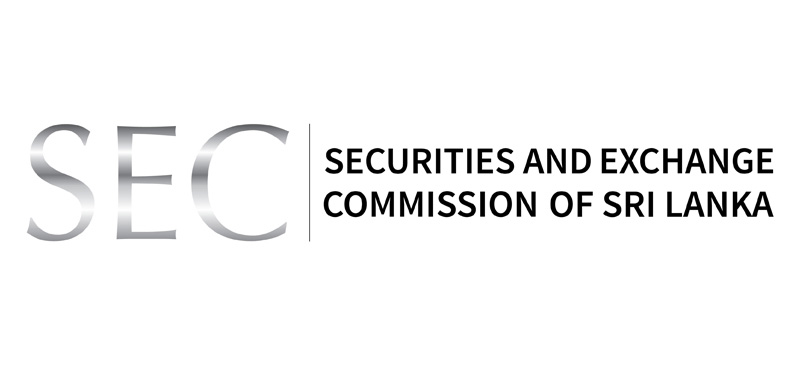Business
The X-Press Pearl Disaster: From Flames to Prevention

By Ruwan Samaraweera
Sri Lanka’s ecological disaster related to the MV X-Press Pearl, a container ship carrying hazardous chemicals that caught fire off its coast on 20th May 2021, is back in the news as the country attempts to claim damages. The ecological disaster washed up tons of plastic pellets and other pollutants on the country’s beaches and harmed its marine ecosystem.
It is a stark reminder of the risks associated with transporting hazardous materials and the urgent need for governments and companies to take proactive measures to prevent such disasters in the future. This blog revisits the environmental impact of the X-Press Pearl disaster and discusses how Sri Lanka can use the Sendai Framework for Disaster Risk Reduction (SFDRR) to develop strategies and policies to prevent similar disasters from happening near its shores again.
The Environmental and Economic Impacts of X-Press Pearl
The X-Press Pearl disaster has had a devastating impact on Sri Lanka’s environment and its citizens. The Marine Environment Protection Authority (MEPA) reported an oil slick of an approximate area of 0.51 km2 with a length of 4.3 km around the wreck. According to the International Pollutants Elimination Network, the ship’s cargo included billions of plastic pellets (microplastics used to produce plastic) which have washed up on the shore, causing damage to the country’s marine ecosystem, tourism industry and its reputation as an eco-tourism destination. According to the International Maritime Hazardous Goods Regulation (IMDG regulation), an analysis of the cargo manifest revealed that at least 81 of the 1,486 containers aboard the MV X-Press were transporting 15 distinct categories of hazardous materials, including 25 tons of nitric acid. While the full extent of the damage is yet to be determined by the MEPA, the insurance company for the ship has already compensated the Sri Lankan government to the tune of USD 7.85 million.
Beyond the monetary valuation, the disaster has severely impacted Sri Lanka’s fishing industry, with over 20,000 fishing families and approximately 16,000 fishermen affected. Additionally, the spillage of hazardous chemicals into the sea has killed over 300 marine animals, including turtles, dolphins, and whales.
The disaster has also raised concerns about the impact of hazardous material transportation on the environment and public safety, highlighting the need for more stringent regulations, especially in densely populated areas. It also revealed institutional and capacity constraints and a lack of training in handling such emergencies, which should be addressed to prevent such disasters. This is where the SFDRR comes into play, providing a comprehensive framework to address these issues and build resilience in the face of such catastrophes.
The Way Forward: Preventing Future Maritime Disasters
The X-Press Pearl disaster is a wake-up call for governments and companies worldwide to take proactive measures to prevent similar disasters in the future. Since its inception in 2015, the SFDRR has become widely recognised for managing diverse disasters worldwide.
The Sendai Framework
Even though there are various frameworks and policies related to disaster risk reduction at the national level in Sri Lanka, including the National Disaster Management Plan, they were inadequate to address the X-Press Pearl disaster timely and effectively. Other countries use numerous measures like response and containment techniques, preparedness and planning, regulation and enforcement, international cooperation and collaboration. The SDFRR combines these individual efforts and brings them under an umbrella framework.
Hence, it offers a comprehensive framework that countries like Sri Lanka can adopt to address the challenges associated with hazardous material transportation and other maritime disaster risks. Moreover, while the adoption of the SFDRR is novel for preventing maritime disasters, it has been widely adopted by many countries, including but not limited to Japan (climate change, Tsunami, Fukushima nuclear disaster, etc.), Australia (wildfires), and Nepal (earthquakes). Therefore, the X-Press Pearl maritime disaster emphasises the potential for harnessing the SFDRR’s wide range of applicability to prevent future similar disasters in Sri Lanka.
Understanding the risks
The first step in preventing such disasters is understanding the risks of shipping hazardous materials through Sri Lanka’s waters. Sri Lanka did not have a proper contingency plan in place to deal with a disaster of this scale. Furthermore, the risk assessment conducted prior to granting permission for the vessel to enter Sri Lankan waters did not adequately consider the potential impact of a disaster. Thus, as mentioned in the SFDRR, Sri Lanka should conduct a risk assessment concerning the potential impact of such disasters on the environment, the economy, and public health.
Strengthening regulations
The SFDRR emphasises the need to strengthen regulations and laws to prevent disasters. For instance, the Draft National Transport Policy of 2009 highlights the safer transportation of hazardous material in all modes, yet the cabinet has not approved this.
Therefore, it is imperative that Sri Lanka reviews its existing laws and regulations, such as the National Environmental Act No. 47 of 1980, the Marine Pollution Prevention Act No. 35 of 2008, and the Dangerous Goods (Transportation) Regulations governing the transportation of hazardous materials and makes necessary amendments to ensure compliance with international standards.
Building capacity
The SFDRR encourages increasing preparedness at all echelons of society. During the X-Press Pearl disaster, emergency responders lacked the necessary equipment and training to respond to the disaster effectively. Additionally, poor coordination between different agencies hampered the response effort. To address these issues, training programmes in collaboration with the Sri Lanka Navy and MEPA could be conducted for essential stakeholders such as shipping companies, port authorities, and emergency responders. These programmes could provide them with the necessary knowledge and skills to prevent and effectively respond to such catastrophes.
Promoting public awareness
The framework stresses the need to educate the public and raise awareness to prevent disasters. However, in the recent disaster, the lack of public awareness about the risks associated with transporting hazardous materials made it difficult to generate support for preventive measures. Therefore, the government, private sector, non-governmental organisations and other relevant stakeholders are responsible for informing the public about the risks of transporting hazardous commodities and the importance of adopting safe shipping practices.
Collaboration and partnerships
The framework encourages cooperation and partnership amongst all parties involved in disaster management. However, Sri Lanka did not collaborate effectively with other countries or international organisations to prevent the disaster. For example, there was no information sharing about the vessel’s previous safety record, which could have alerted Sri Lanka to potential risks. To avoid similar events in the future, Sri Lanka could collaborate with other nations (India and other South Asian countries), international organisations (such as the International Maritime Organisation), and shipping companies.
The disaster has also brought attention to the need for sustainable shipping practices, such as using alternative fuels and more eco-friendly packing materials.Hence, by adopting the Sendai Framework, Sri Lanka can develop an effective approach to prevent similar disasters in the future through proactive measures to protect the environment, public health, and the economy.
Link to blog: https://www.ips.lk/talkingeconomics/2023/05/03/the-x-press-pearl-disaster-from-flames-to-prevention/
Ruwan Samaraweera is a Research Officer at IPS with a background in entrepreneurial agriculture. He holds a Bachelor’s in Export Agriculture from Uva Wellassa University of Sri Lanka. His research interests are environmental economics, agricultural economics, macroeconomic policy and planning, labour and migration, and poverty and development policy. (Talk to Ruwan – ruwan@ips.lk)
Business
SEC Sri Lanka eases Minimum Public Holding Rules for listings via introductions to boost market flexibility

The Securities and Exchange Commission of Sri Lanka (SEC) has approved amendments to the Colombo Stock Exchange (CSE) Listing Rules to provide greater flexibility regarding the Minimum Public Holding (MPH) requirement for companies listing through the Introduction method.
These revisions were proposed and deliberated under Project 6 – New Listings (Public and Private), one of 12 key strategic initiatives launched by the SEC to strengthen Sri Lanka’s capital market framework. Project 6 aims to drive national capital formation, promote listings by highlighting benefits and opportunities for listed entities, and attract large-scale corporates to enhance market depth, liquidity, and investor confidence.
The amendments reflect a joint effort by the SEC and CSE, underscoring strong collaboration between the regulator and the Exchange to address evolving market needs while maintaining market integrity, transparency, and investor protection.
The salient features of the amendments to the CSE listing Rules are as follows;
Entities seeking listing by way of an Introduction on the Main Board or Diri Savi Board that are unable to meet the MPH requirement at the time of submitting the initial listing application, may now be granted a listing, subject to certain conditions on compliance.
Non-public shareholders who have held their shares for a minimum period of eighteen months prior to the date of the initial listing application may divest up to a maximum 2% of their shares each month during the six months commencing from the date of listing, and simultaneously, be subject to a lock-in requirement of 30% of their respective shareholdings as at the date of listing, until MPH compliance or 18 months from the date of listing, whichever occurs first.
A phased MPH compliance framework has been introduced requiring a minimum 50% compliance with MPH requirement within 12 months and full compliance within 18 months from the date of listing.
Entities should include clear disclosures in the Introductory Document confirming their obligation to meet MPH requirements within the prescribed timelines.
In the event of non-compliance with the MPH requirement, certain enforcement actions have also been introduced.
The revised framework is expected to encourage more companies to consider listing via Introduction, thereby broadening market participation, improving liquidity, and contributing to the overall development of Sri Lanka’s capital market. Issuers, investors, and market intermediaries will benefit from a more enabling yet well-regulated listing environment.
Business
Manufacturing counters propel share market to positive territory

Stock market activities were positive yesterday, mainly driven by manufacturing sector counters, especially Sierra Cables, Royal Ceramics and ACL Cables. Further, there was some investor confidence in construction sector counters as well.
Amid those developments both indices moved upwards. The All Share Price Index went up by 150.54 points, while the S and P SL20 rose by 41.5 points. Turnover stood at Rs 4.65 billion with six crossings.
Those crossings were reported in Royal Ceramics which crossed 3.8 million shares to the tune of Rs 174.3 million; its share s traded at Rs 45.20, VallibelOne 1.4 million shares crossed to the tune of Rs 138.6 million; its shares traded at Rs 99, Melstacorp 500,000 shares crossed for Rs 87.24 million; its shares traded at Rs 174.50, Sierra Cables two million shares crossed for Rs 68.2 million, its shares sold at Rs 34.30, Kingsbury 1.5 million shares crossed for Rs 31.8 million; its shares traded at Rs 21.20.
In the retail market companies that mainly contributed to the turnover were; Sierra Cables Rs 418 million (20 million shares traded), Royal Ceramics Rs 363 million (eight million shares traded), Colombo Dockyards Rs 323 million (1.7 million shares traded), ACL Rs 311 million (3.5 million shares traded), Renuka Agri Rs 149 million (12.3 million shares traded), Sampath Bank Rs 94.7 million (648,000 shares traded) and Bogala Graphite Rs 86.4 million (529,000 shares traded). During the day 122.8 million shares volumes changed hands in 34453 transactions.
Yesterday the rupee opened at Rs 310.00/25 to the US dollar in the spot market, weaker from Rs 310.00/310.20 the previous day, dealers said, while bond yields were broadly steady.
By Hiran H Senewiratne
Business
Atlas ‘Paata Lowak Dinana Hetak’ celebrates emerging artists nationwide

Atlas, Sri Lanka’s leading learning brand, reaffirmed its purpose of making learning fun and enjoyable through the Atlas All-Island Art Competition 2025, which concluded with a gifting ceremony held recently at Arcade Independence Square under the theme ‘Atlas paata lowak dinana hetak’. Students from Preschool to Grade 11 showcased their talents across five categories, with all island winners receiving cash prizes, certificates, and gift packs. Additionally, merit winners in each category were also recognized. The event brought together students, parents, and educators, highlighting Sri Lanka’s cultural diversity, nurturing young talent, and reinforcing Atlas’s long-standing commitment to education, creativity, and building confidence among schoolchildren. The event concluded with the ‘Atlas Art Carnival’, which brought children and parents together through games and creative art activities in a fun and lively atmosphere.
-

 News6 days ago
News6 days agoStreet vendors banned from Kandy City
-

 Sports3 days ago
Sports3 days agoGurusinha’s Boxing Day hundred celebrated in Melbourne
-

 News6 days ago
News6 days agoLankan aircrew fly daring UN Medevac in hostile conditions in Africa
-

 News1 day ago
News1 day agoLeading the Nation’s Connectivity Recovery Amid Unprecedented Challenges
-

 Sports4 days ago
Sports4 days agoTime to close the Dickwella chapter
-

 Features6 days ago
Features6 days agoRethinking post-disaster urban planning: Lessons from Peradeniya
-

 Features2 days ago
Features2 days agoIt’s all over for Maxi Rozairo
-

 Opinion6 days ago
Opinion6 days agoAre we reading the sky wrong?













